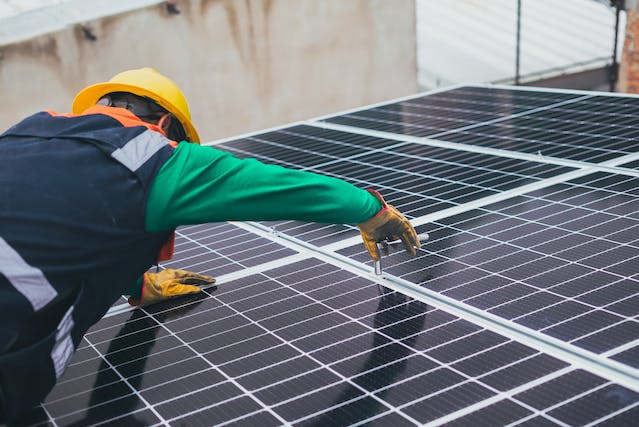Solar panels are cost-effective, environmentally friendly, and also have low maintenance costs. Solar installation is getting popular for several applications across residential, industrial and commercial areas. For the installers, taking care of their safety is extremely important. In this article, we will be listing the potential safety problems and how to prevent them from happening.
Rainy Days
We all know that solar panels are not quite as effective during overcast or rainy days. The same principle applies to solar panel installation. Working during rainy days is just a recipe for disaster. It creates unnecessary problems on multiple levels for all the people involved. The human body conducts electricity, and when it is wet, the chances of getting electrocuted are increased tenfold.
Rather than getting clothes wet and risking them coming in contact with electricity, the project should be stopped until the rain continues. Apart from being a safety hazard in terms of electricity, it also increases the chances of slipping and falling. The area becomes slippery, which makes getting a hold of the roof difficult. Rather than risking injury, it is better to delay the work until the conditions are more supportive.
Electric Shock
Even if it is not raining, there is always a chance of electrocution while working with electricity. Proper vigilance and the right equipment are important to prevent the chances of electric shock. Insulated gloves and tools are the first things to invest in to protect oneself. Choosing solar system safety first is essential to protecting everyone involved.
The chances of electric shock are extremely reduced if one double-checks everything. Additionally, the wire connections should be secured appropriately so that anyone coming in accidental contact, while the project is still on, does not come to harm. The exposed wires should be covered at all times so that the current does not cause a problem.
Not Checking for Damages
Not checking for damages is a mistake that can be easily avoided by doing the opposite. The basic damages include those in the tools and equipment along with on the solar panels. Some sales may be damaged during transportation which needs to be repaired before the panels are installed.
Also, check the internal connections of the building. Both electrical plumbing connections need to be checked because current and water do not mix. Choose a reliable industrial valve supplier for the plumbing.
Other damages can be on the roof or the area where the system is to be installed. If there are any damages on the roof, they need to be repaired before any progress can be made. Keep the area beneath the roof dry at all times with the help of a zeolite supplier. Damages on the rooftop can cause problems because people living beneath can face issues in terms of exposure to currents from the open wires.
No Height Related Safety
Solar panels are usually installed at a height so that they get uninterrupted sunlight in a shadow-free zone. Whenever solar panels are to be installed on a rooftop, harnesses, and helmets should be worn at all times. An anchor can be used to hook harnesses through so that all the people involved in the project can stay sure-footed.
Falling from heights can cause quite a lot of damage. It is a serious concern because the uniform is not made to protect them from any serious injury which might be caused due to a fall. Whether one is working on the ground or on a rooftop, a helmet is a must. Harnesses are a close second, especially on rooftops that are sloping.
Working Alone
Working alone is another mistake that should not be made, especially when it comes to solar panel installation. Smaller projects can be managed alone, but bigger ones need a team. When solar panels are being installed on a house with a sloping roof, working in a team is essential for efficiency as well as protection.
Commercial and industrial projects need to be handled by an experienced team to make sure all safety regulations are met. Additionally, in case there is an accident, the members will be readily available to help out. This becomes important because installers working alone do not have the same privilege.
The Takeaway
Installers are not only responsible for efficiency but also for their personal safety. They will be dealing with the electrical connections and will be working on a height. There are many safety hazards that can be prevented with proper precautions like the ones mentioned above. Choosing safety first will be in the best interests of everyone.

